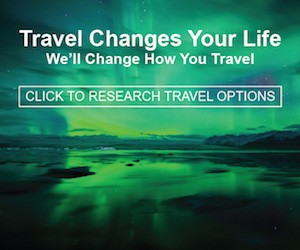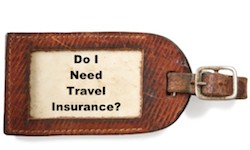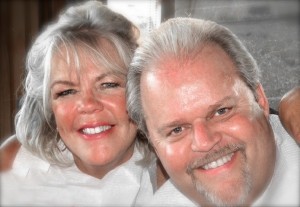Have You Ever Been Shocked by Local Travel Taxes on Hotels, Airports, and Rental Cars?
 I’ll never forget the shock I felt when I first surveyed the taxes paid when renting a car from an airport location for the first time.
I’ll never forget the shock I felt when I first surveyed the taxes paid when renting a car from an airport location for the first time.
Holy taxman in my pocket Batman!
A recent survey by the US Travel Association points out that these high taxes affect the behavior of travelers, and that local taxing authorities would do well to consider carefully the assessment of this “easy money”.
The U.S. Travel Association today announced the initial study of its new Travel Tax Institute, the nation’s preeminent center of research and expertise on rising travel taxes at the city, county and state levels. The Institute conducts comprehensive research and provides accessible information on travel taxation and the potential impact on both local economies and the broader U.S. economy.
“Travelers are often considered an easy tax target, but few public officials understand how rising travel taxes influence consumer behavior and impact the economy,” said Roger Dow, president and CEO of the U.S. Travel Association. “We believe it’s important that political leaders see travelers not just as ‘out-of-towners,’ but as key supporters of local jobs, businesses and development.”
As its inaugural project, the Travel Tax Institute conducted a new survey on consumer attitudes toward travel taxes. The research reveals that taxation has a clear impact on travel planning and spending decisions. Among the key findings:
- High Taxes Alter Travel Plans: 49% of travelers say they have altered their plans due to high travel taxes, including staying at less expensive hotels, spending less on shopping and entertainment, and visiting during the off-season.
- Taxes on Hotels, Airfare High: 68% of travelers rated hotel taxes as “very high” (35%) or “high” (33%); 66% rated taxes on airfare as “very high” (38%) or “high” (28%).
- Travelers Surprised by High Rental Car Taxes: Nearly two out of three travelers surveyed (64%) say that the total tax rate on rental cars is “much more” than they expected to pay compared to other travel taxes.
- Travelers See Taxes Rising: Nearly two-thirds (65%) say they expect to pay higher travel taxes in the year ahead; only two percent believe taxes will decrease.
- Travel Taxes Should Fund Travel Infrastructure: 60% of travelers said travel taxes should be reinvested in travel infrastructure, such as roads and airports, while 49% said “travel/tourism marketing and promotion” also would be an appropriate use of the revenues. Only 14% of surveyed travelers cited “non-travel related expenditures” such as “contributions to government general funds” as an “appropriate” use of travel taxes.
In addition to surveying consumer attitudes, the Travel Tax Institute is creating a comprehensive database to track travel taxes in 50 U.S. destinations – from taxes on airfare and lodging to rental cars and restaurants. The database will also track the uses of these tax revenues, such as funding of destination marketing programs or contributions to the general fund. The database will be available to U.S. Travel members.
The Travel Tax Institute also has launched a price elasticity research project to better understand travelers’ sensitivity to price and the degree to which current and potential travel tax and fee levels could be reducing demand for travel.
“Government leaders are understandably facing difficult budget decisions,” said Dow. “But too often they are setting travel tax policy without a full understanding of how taxes affect travel demand and impact their local economies. The Travel Tax Institute will equip policymakers and industry leaders with the tools they need to make informed decisions.”
 The Roaming Boomers
The Roaming Boomers



